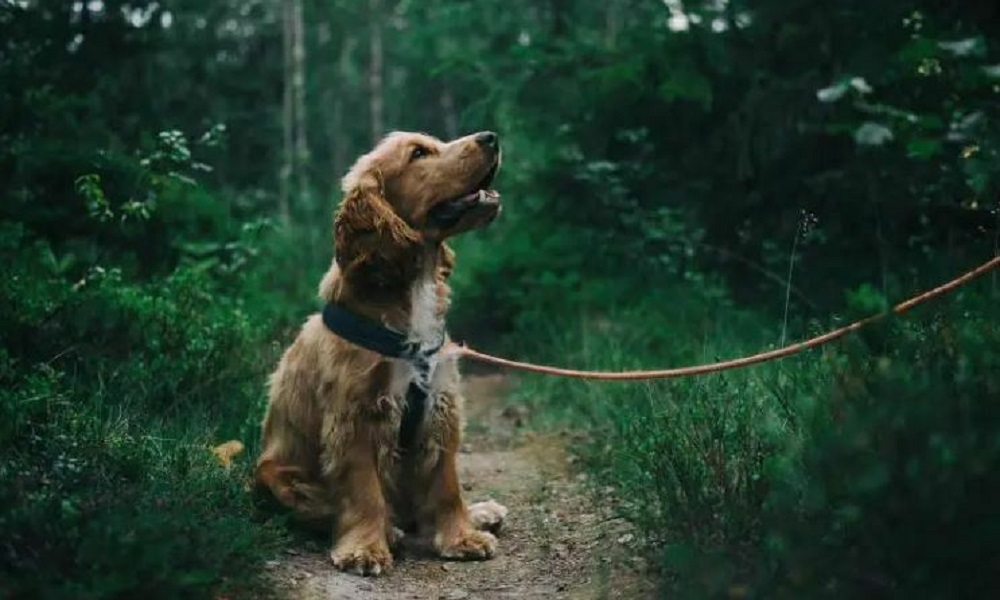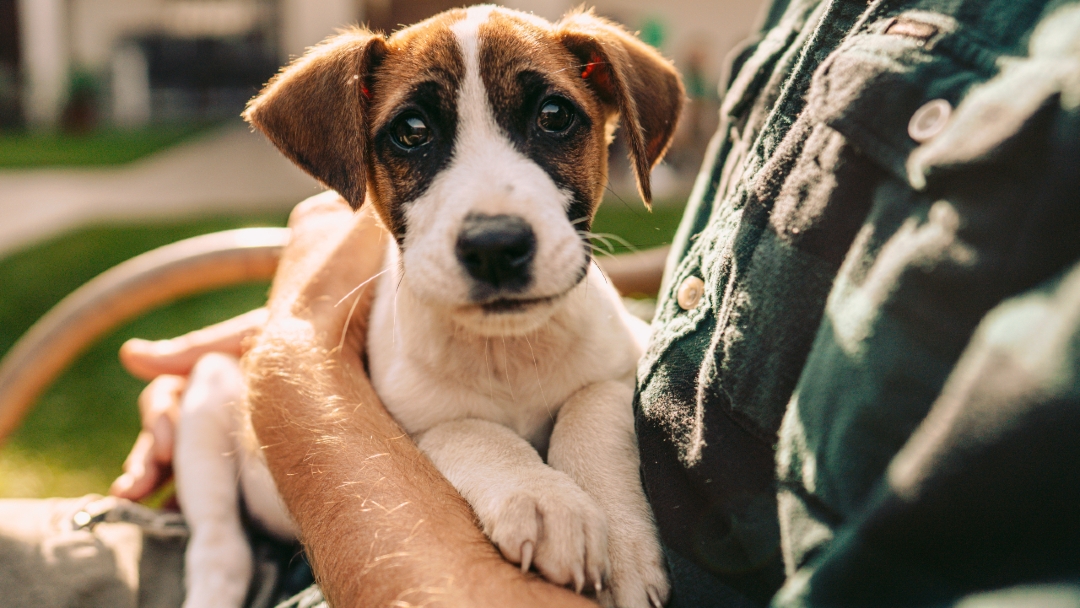A dog can go out 7-14 days after the second vaccine. This allows the vaccine to take full effect. Vaccinations protect dogs from various diseases, ensuring their health and safety.
After receiving the second vaccine, it’s essential to wait before exposing them to the outside world. This waiting period allows the vaccine to build immunity, safeguarding your pet from harmful pathogens.
Taking your dog out too soon can expose them to risks, as their immune system might not be fully prepared. By waiting the recommended 7-14 days, you ensure that your dog is well-protected and can safely explore their environment.

Introduction To Canine Vaccination
Vaccinating your dog is important for its health. It keeps them safe from many diseases. After the second vaccine, you might wonder when your dog can go out.
The Importance Of Vaccines For Dogs
Vaccines protect dogs from harmful diseases. These diseases can cause serious illness or even death. Vaccines work by preparing the dog’s immune system. This way, the body can fight off infections better.
Rabies, parvovirus, and distemper are examples of diseases that vaccines can prevent. Vaccinated dogs are healthier and live longer. This is why it is important to vaccinate your dog.
Typical Vaccine Schedule For Puppies
Puppies need several vaccines in their first year. This helps build their immunity. Below is a typical vaccine schedule for puppies:
| Age | Vaccines |
|---|---|
| 6-8 weeks | Distemper, Parvovirus |
| 10-12 weeks | Distemper, Parvovirus, Bordetella |
| 14-16 weeks | Rabies, Distemper, Parvovirus |
| 12-16 months | Rabies, Distemper, Parvovirus |
Puppies receive their first vaccines at 6-8 weeks old. They need booster shots at 10-12 weeks and 14-16 weeks. The final booster is given at 12-16 months.
After the second vaccine, it is often safe for puppies to go outside. But always consult your vet. They can give the best advice for your puppy’s health.
Understanding The 2nd Vaccine
Vaccinating your dog is crucial for their health. The 2nd vaccine plays a significant role in building their immunity. This section explains the 2nd vaccine and its importance.
Core Vs. Non-core Vaccines
Vaccines for dogs are divided into two categories: core vaccines and non-core vaccines.
Core vaccines are essential for all dogs. They protect against severe diseases like rabies and distemper.
Non-core vaccines are optional. They depend on the dog’s lifestyle and environment. These might include vaccines for Lyme disease or kennel cough.
What The 2nd Vaccine Entails
The 2nd vaccine is a booster dose. It strengthens the immunity developed by the first vaccine.
- Core Vaccines: The 2nd dose of core vaccines like rabies and distemper is usually given three to four weeks after the first dose.
- Non-core Vaccines: If your dog needs non-core vaccines, the 2nd dose schedule might differ.
After the 2nd vaccine, your dog’s immune system is stronger. They are better protected against various diseases.
| Vaccine | 1st Dose | 2nd Dose |
|---|---|---|
| Rabies | At 12-16 weeks | 1 year later |
| Distemper | At 6-8 weeks | 3-4 weeks later |
| Lyme Disease | At 12 weeks | 2-4 weeks later |
After receiving the 2nd vaccine, your dog should wait a bit before going out. This helps ensure the vaccine is effective.
The Waiting Period Explained
After your dog receives its second vaccine, you might be eager to take them out for walks. But there’s a crucial waiting period that ensures your pet’s safety.
Reasons For The Waiting Time
The waiting period after your dog’s second vaccine is vital. It allows the vaccine to work effectively. This period helps in building your dog’s immunity against diseases.
- Protection: The vaccine needs time to develop full protection.
- Safety: Your dog might still be vulnerable to infections.
- Effectiveness: Ensuring the vaccine works as intended.
Waiting ensures your dog is fully protected before facing potential risks outdoors.
Immunity Development Post-vaccination
Immunity doesn’t develop overnight. After the second vaccine, your dog’s body needs time to build a defense system.
| Stage | Timeframe | Description |
|---|---|---|
| Initial Response | 1-3 Days | The immune system starts recognizing the vaccine. |
| Antibody Production | 1-2 Weeks | The body produces antibodies to fight diseases. |
| Full Immunity | 2-4 Weeks | The dog develops strong immunity against infections. |
Patience is key during this period. Allowing the necessary time ensures your dog’s health and well-being.
By understanding the importance of this waiting period, you can better protect your dog. Always follow your vet’s guidelines and keep your pet safe.
Safety Precautions During The Waiting Period
After your dog receives their second vaccine, it’s important to take certain safety precautions during the waiting period before they can go out.
This ensures your pet remains healthy and protected from potential infections. Let’s explore some key safety measures you can follow.
Limiting Exposure To Other Dogs
During the waiting period, it’s crucial to limit your dog’s exposure to other dogs. Their immune system is still building strength. Keep your dog away from parks and other common areas where dogs gather.
- Avoid dog parks.
- Stay clear of areas with stray dogs.
- Refrain from dog playdates.
By following these steps, you reduce the risk of your dog coming into contact with potential infections.
Indoor Vs. Outdoor Safety
While it’s important to limit outdoor activities, you can still ensure your dog’s safety indoors. Here are some tips:
| Indoor Safety | Outdoor Safety |
|---|---|
| Keep the home clean. | Avoid high-traffic areas. |
| Provide clean water. | Stay within your yard. |
| Use indoor training activities. | Monitor your dog closely. |
For indoor safety, regularly clean your home and provide fresh water. Engage your dog with indoor training activities to keep them active and entertained.
For outdoor safety, avoid high-traffic areas and stay within your yard. Always monitor your dog closely to ensure they don’t come into contact with harmful substances or animals.
By adhering to these precautions, you can help keep your dog safe and healthy during the waiting period after their second vaccine.

Post-vaccination: When To Venture Out
After your dog receives its second vaccination, you might feel excited to take them outside. But it’s important to know the right time to start outdoor adventures. This ensures your pet stays safe and healthy.
Recommended Time Before Going Out
Veterinarians typically recommend waiting seven to ten days after the second vaccine. This period allows your dog’s immune system to build up protection. During this time, keep your dog indoors or in your yard.
Check with your vet for specific advice tailored to your dog’s needs. Each dog may have different requirements based on its health and breed.
Activities To Avoid Immediately After Vaccination
Even after the waiting period, some activities should be avoided:
- Dog Parks: Avoid dog parks until your vet gives the all-clear. These places can have unvaccinated dogs.
- Heavy Exercise: Skip intense activities like running or jumping. Allow your dog to gradually build up their stamina.
- Bathing: Do not bathe your dog immediately after vaccination. Wait at least 48 hours to avoid stressing their immune system.
Keep your dog’s environment as stress-free as possible during this period. Stress can weaken their immune response.
| Activity | Recommended Waiting Period |
|---|---|
| Going for Walks | 7-10 days after second vaccine |
| Visiting Dog Parks | Until vet approves |
| Heavy Exercise | Avoid initially, then gradually increase |
| Bathing | Wait at least 48 hours |
Following these guidelines helps ensure your dog remains healthy and enjoys their new outdoor experiences safely.
Regular Health Check-ups And Booster Shots
Dogs need regular health check-ups and booster shots to stay healthy. These visits help monitor their growth and catch any health issues early.
After the second vaccine, your dog may still need follow-up vaccinations. This ensures they remain protected against diseases. A good health plan includes scheduled check-ups and vaccinations.
Scheduling Follow-up Vaccinations
Scheduling follow-up vaccinations is crucial for your dog’s health. Your vet will provide a vaccination schedule. This schedule tells you when your dog needs their next shot. Follow this schedule strictly.
After the second vaccine, your dog might need booster shots. These boosters keep their immunity strong. Missing these shots can reduce the vaccine’s effectiveness. Keep a record of all vaccinations. This helps you stay on track with your dog’s health needs.
Maintaining A Long-term Health Plan
Maintaining a long-term health plan for your dog is essential. Regular vet visits help monitor their overall health. These visits should include a physical exam and any necessary tests.
A long-term health plan might include:
- Yearly physical exams
- Booster shots as per vet’s advice
- Regular dental check-ups
- Parasite prevention treatments
Creating a health plan with your vet ensures your dog stays healthy. It also helps in early detection of any issues. Here is a simple table to help you remember important follow-up dates:
| Vaccine | Next Follow-up Date |
|---|---|
| Second Vaccine | 3 Weeks After |
| Booster Shot 1 | 1 Year After |
| Booster Shot 2 | Every 3 Years |
By following this plan, you ensure your dog gets the care they need. Regular check-ups and booster shots are key to a healthy, happy dog.
Frequently Asked Questions
Can I Take My Dog Out After The 2nd Vaccination?
Yes, you can take your dog out after the second vaccination. Ensure they avoid contact with unvaccinated dogs.
Can My Dog Go Out After 2 Shots?
Yes, your dog can go out after 2 shots, but avoid crowded places. Ensure vaccinations are complete for full protection.
Can Dogs Go Out After 2 Vaccinations?
Yes, dogs can go out after their second vaccination. Ensure they avoid contact with unknown dogs and dirty areas.
How Long After A Second Vaccination Can A Puppy Meet Other Dogs?
A puppy can meet other dogs one week after their second vaccination. Ensure all vaccinations are up-to-date.
How Long After 2nd Vaccine Can Dog Go Out?
Your dog can go out 7-14 days after the second vaccine.
Can I Take My Puppy Out 6 Days After 2Nd Vaccination?
Yes, you can take your puppy out 6 days after their 2nd vaccination. It is always best to check with your veterinarian first to make sure that your puppy is ready for socialization and that they have received all of the necessary vaccinations.
Conclusion
Generally, puppies can go outside to public spaces around two weeks after their second set of puppy vaccinations.
This waiting period is crucial as it allows the vaccine to build up the puppy’s immunity effectively, protecting them against common and potentially severe diseases such as parvovirus, distemper, and adenovirus.